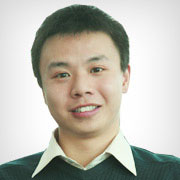┐╝įć░╔╠ßąčÅV┤¾┐╝╔·├┐╠ņ▒│šbę╗Ų¬ā×(y©Łu)ąŃū„╬─����Ż¼─▄ėąą¦Ą─Ä═ų·┐╝╔·╠ßĖ▀īæū„─▄┴”ĪŻ
ĪĪĪĪ05 The Beginning of Drama
ĪĪĪĪThere are many theories about the beginning of drama in ancient Greece. The on most widely accepted today is based on the assumption that drama evolved from ritual. The argument for this view goes as follows. In the beginning, human beings viewed the natural forces of the world-even the seasonal changes-as unpredictable, and they sought through various means to control these unknown and feared powers. Those measures which appeared to bring the desired results were then retained and repeated until they hardened into fixed rituals. Eventually stories arose which explained or veiled the mysteries of the rites. As time passed some rituals were abandoned, but the stories, later called myths, persisted and provided material for art and drama.
ĪĪĪĪThose who believe that drama evolved out of ritual also argue that those rites contained the seed of theater because music, dance, masks, and costumes were almost always used, Furthermore, a suitable site had to be provided for performances and when the entire community did not participate, a clear division was usually made between the "acting area" and the "auditorium." In addition, there were performers, and, since considerable importance was attached to avoiding mistakes in the enactment of rites, religious leaders usually assumed that task. Wearing masks and costumes, they often impersonated other people, animals, or supernatural beings, and mimed the desired effect-success in hunt or battle, the coming rain, the revival of the Sun-as an actor might. Eventually such dramatic representations were separated from religious activities.
ĪĪĪĪAnother theory traces the theater's origin from the human interest in storytelling. According to this vies tales (about the hunt, war, or other feats) are gradually elaborated, at first through the use of impersonation, action, and dialogue by a narrator and then through the assumption of each of the roles by a different person. A closely related theory traces theater to those dances that are primarily rhythmical and gymnastic or that are imitations of animal movements and sounds.
ĪĪĪĪ06 Television
ĪĪĪĪTelevision-----the most pervasive and persuasive of modern technologies, marked by rapid change and growth-is moving into a new era, an era of extraordinary sophistication and versatility, which promises to reshape our lives and our world. It is an electronic revolution of sorts, made possible by the marriage of television and computer technologies.
ĪĪĪĪThe word "television", derived from its Greek (tele: distant) and Latin (visio: sight) roots, can literally be interpreted as sight from a distance. Very simply put, it works in this way: through a sophisticated system of electronics, television provides the capability of converting an image (focused on a special photoconductive plate within a camera) into electronic impulses, which can be sent through a wire or cable. These impulses, when fed into a receiver (television set), can then be electronically reconstituted into that same image.
ĪĪĪĪTelevision is more than just an electronic system, however. It is a means of expression, as well as a vehicle for communication, and as such becomes a powerful tool for reaching other human beings.
ĪĪĪĪThe field of television can be divided into two categories determined by its means of transmission. First, there is broadcast television, which reaches the masses through broad-based airwave transmission of television signals. Second, there is nonbroadcast television, which provides for the needs of individuals or specific interest groups through controlled transmission techniques.
ĪĪĪĪTraditionally, television has been a medium of the masses. We are most familiar with broadcast television because it has been with us for about thirty-seven years in a form similar to what exists today. During those years, it has been controlled, for the most part, by the broadcast networks, ABC, NBC, and CBS, who have been the major purveyors of news, information, and entertainment. These giants of broadcasting have actually shaped not only television but our perception of it as well. We have come to look upon the picture tube as a source of entertainment, placing our role in this dynamic medium as the passive viewer.
ĪĪĪĪŽÓĻP(gu©Īn)═Ų╦]Ż║
2010─Ļ12į┬ėóšZ(y©│)╦─┴∙╝ē(j©¬)┐╝įćā×(y©Łu)ąŃĘČ╬─▒│šb21Ų¬ĪĪĪĪĪĪĪĪĪĪĪĪĪĪ1995-2010─Ļ6į┬ėóšZ(y©│)╦─╝ē(j©¬)ū„╬─šµŅ}╝░ĘČ╬─ģR┐é













